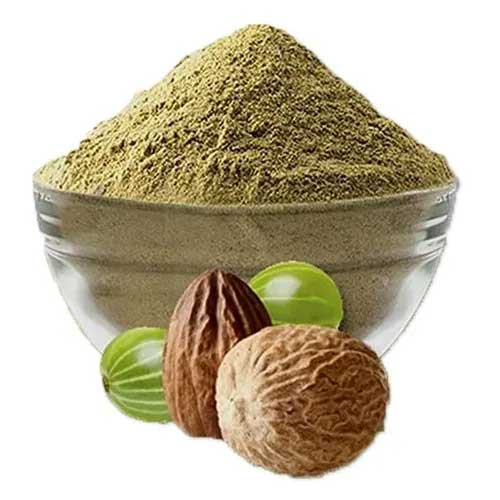
According to reports and studies, there has recently been an increase in the number of urban Indians who have irregular or difficult stools to pass. While only 10% of people worldwide experience constipation, at least 14% of Indian urban residents report having the condition.
What are this condition’s causes, signs, and symptoms, and is there a natural remedy for it? To learn more, keep reading.
Causes of constipation
According to clinical studies, medical conditions, medications, and issues with the digestive system’s muscles can all cause constipation. However, for the majority of urban Indians who experience constipation, lifestyle and dietary factors like:
- high consumption of foods not vegetarian
- low hydration
- eating more processed food and consuming fiber
- eating fried, spicy, and processed food
Constipation signs and symptoms
The signs of constipation include
- Almost no bowel movements
- constipation issues
- Stomach bloating
Constipation Remedies
Many people turn to laxatives or other contemporary drugs to treat constipation. To treat constipation, however, there is no need for medication.
Making dietary and lifestyle changes can help those who are not extremely constipated by reducing their symptoms. Some of these adjustments are as easy as consuming more fluid and fiber. Constipation relief has been claimed by those who regularly practiced this.
In addition to dietary and lifestyle changes, people who experience more severe forms of constipation might also need to take some medication. Ayurveda has treatments for many diseases, including constipation.
What is Triphala?
Triphala is a blend of three fruits or herbs known as Haritaki, Bibhitaki, and Amalaki. It is known as Tridoshic Rasayana in Ayurveda, which means it is a therapeutic agent that balances all three doshas – Kapha, Vata, and Pitta.
It is high in antioxidants such as vitamin C, which aids in immunity building. Because of its detoxifying properties, taking Triphala supplements on an empty stomach before bed can be beneficial for internal cleansing. Triphala churna also aids in weight loss by significantly lowering energy intake and body fat. Its consumption also protects against certain heart diseases due to its antioxidant properties. Triphala powder, taken with milk, or Triphala capsules, provides constipation relief due to its laxative properties.
Because of its anti-aging properties, a paste of Triphala and coconut oil can be applied to the face to improve skin texture and elasticity. Triphala is also beneficial to the eyes due to its antioxidant activity, which aids in the improvement of eye health. Because of the presence of vitamin C, Triphala helps to control hair fall and promotes hair growth when applied to the scalp.
Triphala for Constipation
Triphala churna is the most effective Ayurvedic remedy for constipation. Amalaki balances the pitta dosha, bibhitaki balances the Kapha dosha, and haritaki balances the Vata dosha. The three compounds help to revitalize and strengthen the digestive system while also acting as a mild laxative.
Harad, also known as black myrobalan or Hartaki, is an important component of Triphala churna. Harad acts as a powerful laxative, astringent, and lubricant within the stomach, assisting in the loosening of hard stools and lowering your risk of anal fissures, fistulas, and hernias. Harad is used in Ayurvedic medicine to treat acute constipation, diarrhea, liver problems, and other infections. This is due to Harad’s antibacterial, antifungal, and antiparasitic properties.
Amla or Amalaki has a variety of health benefits, but one of the most notable is that it is a mild laxative. It cools the stomach lining and reduces inflammation. Amla is commonly used to treat ulcers, constipation, diarrhea, and infections, and to alleviate the burning sensation experienced when one’s stomach is irritated.
Bibhitaki is a natural laxative that also contains dietary fibers, which are digestive agents that help with constipation.
Recommended Dosage of Triphala
- Triphala Powder – 1/2-2 teaspoons once or twice a day.
- Triphala Capsule – 1-2 capsules twice a day.
- Triphala Tablet – 1-2 tablets twice a day.
- Triphala Juice – 2 teaspoons once or twice a day.
How To Use Triphala for Constipation
- Wash it down with warm water after putting half to one teaspoon of Triphala churna on your tongue. It should be taken before going to bed.
- Because of its diuretic properties, some people wake up several times during the night to urinate, causing them to have disturbed sleep. In this case, steep a cup of warm water with Triphala powder overnight and drink it first thing in the morning. The best time to drink Triphala water is between 4:00 am and 5:00 am in the morning.
- If you do not like the taste of just Triphala and water, add a dash of honey to make it sweeter.
- If you are feeling bloated, try adding some grated ginger for immediate relief.
Manage constipation with Triphala powder, and if that does not work, see a doctor before things get too complicated.
FAQs
- How much Triphala is considered safe?
Triphala is generally considered safe to consume. However, if consumed in large quantities, it may cause gastrointestinal problems.
- When is the best time to take Triphala?
Triphala is best taken 30 minutes before going to bed because it provides the most laxative and digestive benefits.
- Is it safe to take Triphala on a daily basis?
Yes, taking Triphala on a daily basis is recommended. This aids in the management of blood glucose levels, the treatment of intestinal infections, and the relief of constipation. Triphala is also an antibacterial, immunomodulator, antioxidant, blood purifier, and wound healer.
- Is Triphala effective for constipation?
Triphala cleanses the colon gently and alleviates constipation, flatulence, and bloating. This is because it has a mild laxative effect.
- What are the advantages of consuming Triphala with milk?
Triphala with milk acts as a mild laxative and aids in the improvement of bowel movements. This aids in digestive tract management and prevents constipation.
- Is Triphala suitable for diabetics?
Triphala may aid in the management of type 2 diabetes. This is because it has anti-inflammatory and antioxidant properties. Triphala may aid in the reduction of carbohydrate breakdown, thereby lowering blood sugar levels. It also protects pancreatic cells and increases insulin secretion.






